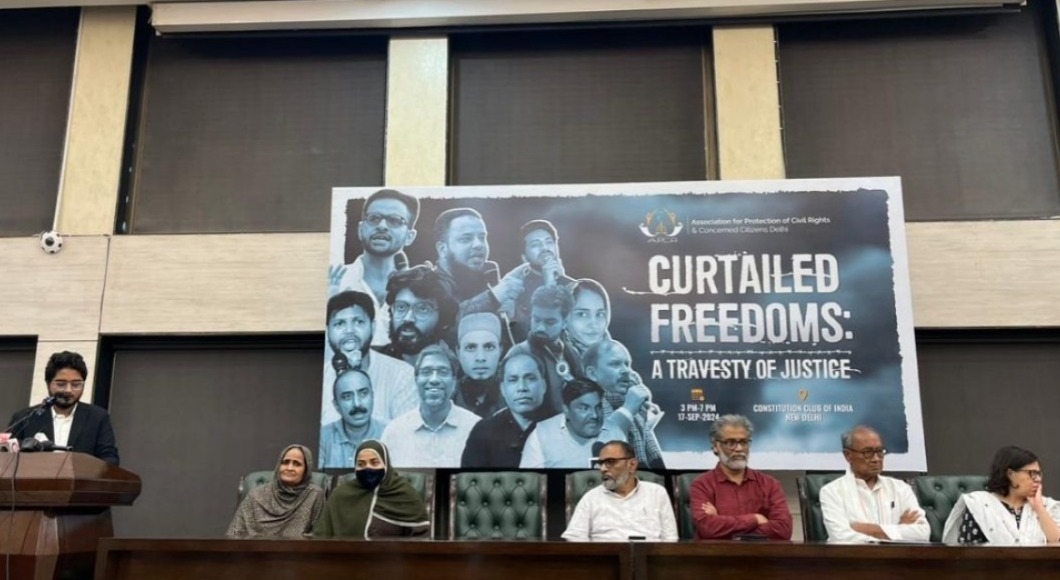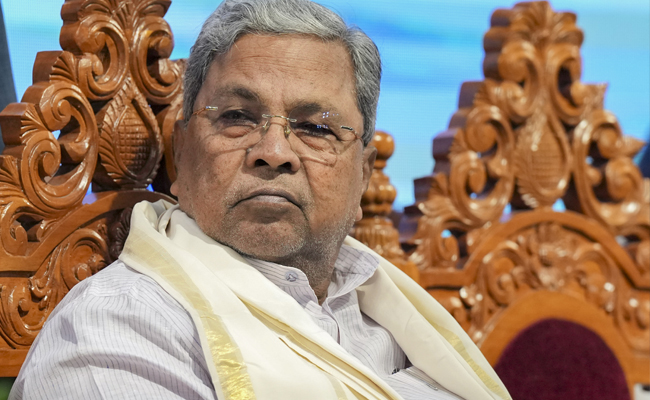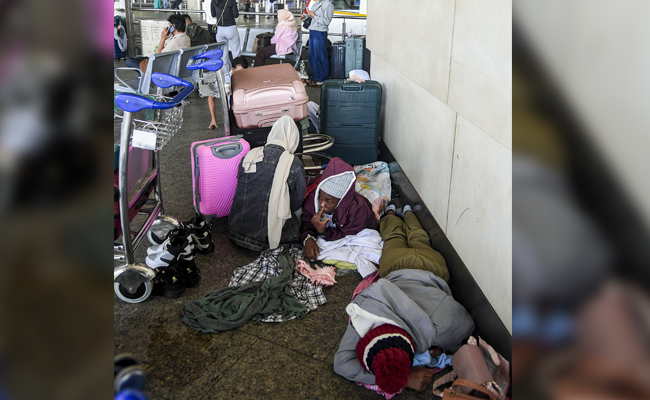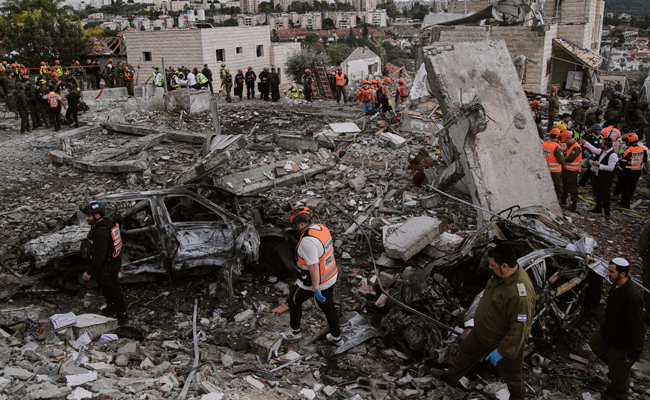New Delhi: The families of activists imprisoned after the 2020 Delhi riots, including Umar Khalid, Meeran Haider, Gulfisha Fatima, Khalid Saifi, and Athar Khan, have voiced concerns over their prolonged detention. They argue that despite the Supreme Court's assertion that "bail is the rule," the activists continue to remain behind bars.
At a public meeting organized by the Association for Protection of Civil Rights (ACPR), Umar Khalid's father, S.Q.R. Ilyas, questioned the impartiality of the judiciary, pointing to the continued incarceration of his son and others. He also raised concerns about the relationship between the executive and judiciary, citing a recent instance where the Chief Justice of India invited the Prime Minister for a publicised religious ceremony.
The families of these activists, who were charged under the Unlawful Activities Prevention Act (UAPA) in connection with the anti-CAA protests, highlighted their struggles. Farzana Yasmeen, the sister of Meeran Haider, expressed her family's pain but noted that Haider remains proud of raising his voice for justice. Athar Khan's mother, Noor Jehan, also voiced frustration, saying their case had appeared in court 62 times without a hearing.
Khalid Saifi’s wife, Nargis Saifi, highlighted the disparity in the judicial system, pointing out that her husband has been denied bail for over four years, while individuals accused of more severe crimes like rape and corruption have been granted bail.
Several prominent figures, including Congress leader Digvijaya Singh and CPI(ML) General Secretary Dipankar Bhattacharya, attended the meeting. Singh criticized the RSS and its influence, arguing that the organization poses a threat to India's democracy and constitution.
Let the Truth be known. If you read VB and like VB, please be a VB Supporter and Help us deliver the Truth to one and all.
Shivamogga (Karnataka) (PTI): Karnataka Chief Minister Siddaramaiah on Sunday strongly condemned the killing of Iran's supreme leader Ali Hosseini Khamenei.
He also assured that efforts were underway to bring back Kannadigas stranded in the Middle East.
He said the state government was in constant touch with officials and the Ministry of External Affairs to ensure the safety of Indians stuck in Dubai due to flight disruptions.
"The war that is being waged -- in my opinion, the war that America has carried out on Iran -- is unnecessary," Siddaramaiah told reporters.
"On one side, they speak about peace, the Americans, President Trump; on the other side, they wage war. This is a contradictory stand. I strongly condemn this," he said.
Speaking about Khamenei, the Chief Minister said, "We are seeing on television that Khamenei has been killed. I strongly condemn this. I pray that his soul attains eternal peace." On Kannadigas stranded in the West Asia, Siddaramaiah said the State Government had already initiated steps.
"I have already spoken about this. I have spoken to our chief secretary, our principal secretary, and also to our assistant commissioner in Delhi. The airport in Dubai is shut down. As soon as it is opened, efforts will be made to safely bring them back," he said.
When reporters pointed out that JD(S) MLC S L Bhojegowda was also stranded in Dubai with his family, the chief minister said, "I spoke to Bhoje Gowda. He said he is safe and is staying at a hotel.
Siddaramaiah said, "We are also in touch with the Ministry of External Affairs. We are making efforts to bring everyone back safely without causing any inconvenience. All of them are Kannadigas. From Ballari, some 35 people are stuck. The total is 52, including people from other states. We will make efforts to bring all of them back."
The CM added that the state government is in touch with the secretariat of the Ministry of External Affairs. According to him, all the Indians are safe in Dubai.





